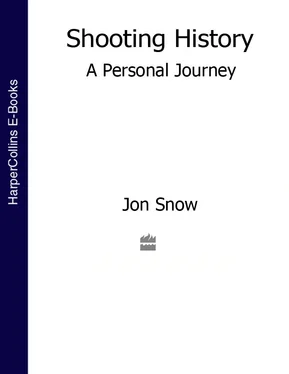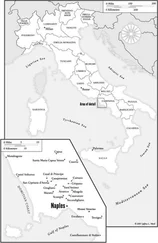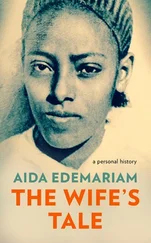I didn’t mind playing games, although my gangling form meant that my brain seemed to be too far from the extremity of my limbs. Messages as to when to kick the ball failed to connect adequately with the foot in question. In short, my hand–eye co-ordination was abominable. Watching games left me both physically and mentally cold. Yet the pseudo-military hierarchy of the place depended on hero-worshipping those who excelled in games. Because I failed to watch, or worse failed to concentrate when I was watching, I failed hopelessly at the hero-worshipping. When matches were being played I preferred to hide in the art room and paint, or strum on the piano in a practice room.
One day after a rugby match, still only fourteen years old, I returned to the day room, where perhaps twenty ‘horseboxes’ were arranged around the walls. The ‘horsebox’ was your own personal space – a small contained area with a seat, a desk, shelves, and somewhere to stick up pictures of Mummy, Daddy and the dog. On this particular day I made towards my horsebox, only to find that it was completely naked – the curtain, the photos, books, cushions, possessions, all gone. Suddenly I was jumped on from behind by half a dozen of the other horsebox-dwellers. Grabbed by the hair, I was shoved into the large wastebin in the corner. In the bin already were Mummy, Daddy and the dog, all ripped to shreds, while Quink ink and the Blanco used for greening our military webbing had been smeared on what remained of my precious possessions.
The bullying was institutionalised. The housemaster, a shy, dysfunctional bachelor, lived next door to our day room, and must surely have heard all the noise. Sexual activity between the boys was also commonplace. Boys were talked about as sexual objects. Blond, blue-eyed newcomers – as I had been – were trouble from the outset, importuned by bigger boys for mutual masturbation. I remember how a prefect in the neighbouring boarding house, who was building a canoe in the basement, lured me down to see it. Before I realised it, he had his hand down my trousers, and demanded mine down his. Fagging, or acting as unpaid servant, was almost as exploitative as the sex. I fagged for a diminutive seventeen-year-old prefect who demanded that the insteps of his shoes be polished so they would glisten when he knelt for communion. It was a rocky and wretched introduction to adolescence, so far from Nanny and the backlit fields of stooks that I still dreamt of from childhood. Yet it also made me political, and made me yearn, if only subconsciously, for change, and later to campaign for it. Some of us went under. I remember one boy called Prythurch – I never knew his first name – who was teased mercilessly for his pink National Health spectacles. One term he simply never came back.
Academically, I was a failure. In a sense, the teaching mirrored the sport. If the school decided you were bright, you secured the best teachers, and were pushed. If you were deemed ‘thick’, you got either the rugby coaches who had to fulfil their teaching quota, or the straightforwardly unemployable. One of these was Stan Tackley. Stan was perhaps the most boring and uninterested teacher of Latin, English and French of his generation, and I had him for all three subjects. He taught with an elderly, flatulent golden Labrador at his feet.
My year with Stan and his dog Brandy delivered me bottom in Latin, bottom in English, and bottom in French. I was in the bottom fifth form, 5f; my brother Nick, two years my junior, was already ahead of me in 5b. Things were looking bad, and my father took me into his study when I returned home. ‘Sonny,’ he said, causing me to wonder if he used the word because he couldn’t tell which of us was which, as we had been away so long, ‘Sonny, your mother and I have decided you should leave St Edward’s and become apprenticed at Dorman Long in Middlesbrough.’
‘Crumbs,’ I said. ‘Me a steelworker?’ Dorman Long had a vast series of steelworks on Teesside, and my father admired the heavy industry in his diocese, never having been exposed to it before. ‘One more year, Dad,’ I pleaded. When I returned to school, Stan was still teaching me some classes, but fewer of them.
In the afternoons, Stan was Major Tackley, and ran the Combined Cadet Force. The school would suddenly become a sea of khaki and air-force blue. Boys would run about brandishing bolt-action Lee Enfield guns. We were tutored in war. The staff’s wartime exploits were the iconography of discourse at the dinner table. But no member of staff could hold a candle to the school’s most famous old boys. These included Guy Gibson VC, who led the original ‘Dam Busters’ raids against German dams and was one of the greatest pilots of the Second World War, but died in action, and the legendary Group Captain Douglas Bader DSO, of 242 Squadron, RAF, who was very much alive, but literally legless. Bader was a living legend who had had both legs amputated when his fighter plane crashed during a stunt. He fought back to fly again in combat, wearing artificial pins.
Now, in the early 1960s, he would rock around the school grounds, stickless and unaided, a lesson to us all. He had no job there, he was just a professional old boy. Bader in many ways typified the politics of the school. If they were ever mentioned, the Labour Party, the burgeoning ‘Ban the Bomb’ anti-nuclear movement, socialism and, of course, Communism were the enemies of what we were about. It was a political culture that chimed with that of my parents.
My first memory of an ambition was indeed, at the age of fifteen, to be a Tory MP. Whether this aspiration derived from my early brush with Macmillan or from the school I don’t know, but it was certainly there. My sense of the outside world depended almost exclusively on the Daily Mail. We were only allowed the radio on Sundays, when we would listen to Forces’ Favourites, yet another reminder that all over the world there were British troops ranged against ‘the enemy’. Otherwise we listened to Radio Luxembourg, the only pop station then in being. We had no access to television. So our knowledge of world events was narrow in the extreme.
I was fifteen at the time of the Cuban missile crisis. Bearded Castro, dictator of Cuba, and bald-headed Khrushchev, leader of the Soviet Union, were depicted as exceptionally unpleasant and dangerous men. Never more so than when the latter repeatedly banged his shoe on a desk at the UN General Assembly in New York in October 1960. By contrast the handsome and clean-shaven American President, John F. Kennedy, couldn’t put a foot wrong. And Harold Macmillan had by now been transmogrified into ‘Super Mac’. The argument that Cuba might need Russia’s nuclear missiles to guard against, or even stave off, another American invasion was simply never made. Russia wanted to put her missiles on Cuba to attack America, that was the only interpretation we were ever offered. This was the Cold War, the East–West standoff.
As the missile crisis deepened, we went through our nuclear protection exercises on an almost weekly basis – under our desk lids, heads in the brace position. It wasn’t until much later that I began to learn about the abortive Bay of Pigs invasion in 1961, in which Kennedy had sent 1500 US-trained Cuban exiles to try to overthrow Castro. For a time the world was on the edge of the abyss of nuclear war, but I cannot pretend to have been aware of the true magnitude of it at the time.
By November 1963 the world had changed again. Adorned as a woman, I was strutting my stuff on the school stage. I was playing Eva in Jean Anouilh’s comedy Thieves’ Carnival. Of my performance, the Oxford Times wrote: ‘the only giveaway is the too-masculine stride’. On the twenty-second of that month my mother and father drove down to watch the play. Act One passed without incident, but something happened during the interval. Somehow members of the audience found out that Jack Kennedy had been shot, and was dying in a Dallas clinic. The belly laughs of the first half of the performance were not repeated in the second. There was much whispering and talking low. People scurried away at the end. It was as if innocence itself had been shot. My parents were overwhelmed with gloom. ‘Super Mac’ and Jack had bonded like father and son. There had been a new optimism abroad, a new sense of Camelot and magic. And now this spirit was all but dead.
Читать дальше












